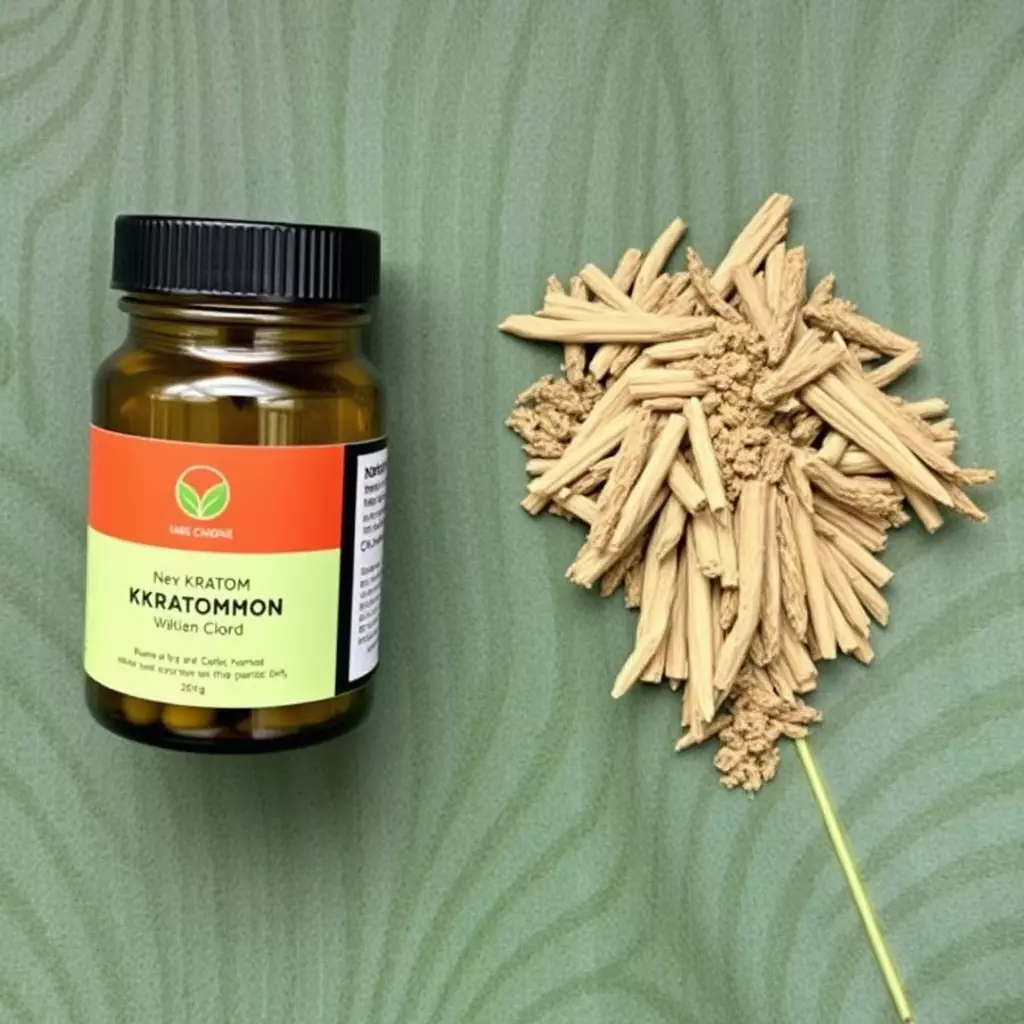Kratom, derived from the Mitragyna speciosa tree, is a natural supplement that has gained attention for its potential cognitive-enhancing effects, particularly for stress relief and improving mental clarity and focus. The active compounds mitragynine and 7-hydroxymitragynine found in kratom leaves are believed to interact with brain receptors, which may aid in enhancing concentration, reducing mental fog, and providing a calming effect that contributes to stress relief with kratom. Users often report improved performance on tasks requiring attention and a sense of well-being. Unlike synthetic medications for stress, kratom is associated with fewer severe side effects, making it an appealing choice for those seeking natural pathways for relaxation and mental acuity. However, individual dosage responses to kratom can vary significantly, highlighting the importance of consulting healthcare professionals before its use. It's important to consider the potential for abuse or dependency with kratom and to acknowledge that more research is needed on its long-term effects. Users should practice mindfulness regarding dosage and context of use to ensure safe and effective stress relief with kratom as part of a wellness routine.
navigating the complexities of daily life can often cloud our mental clarity and focus. Many individuals seek effective, natural methods for stress relief with kratom emerging as a prominent option. This article delves into how kratom can enhance cognitive function, offering insights into its scientifically proven effects on concentration and anxiety management. Discover practical ways to integrate kratom into your daily routine for sharper mental acuity and a more tranquil state of mind. Join us as we explore the transformative potential of kratom in unlocking a clearer, more focused mental landscape.
- Unlocking Mental Clarity and Focus Through Kratom: A Natural Approach to Stress Relief
- The Science Behind Kratom's Effects on Cognitive Function and Stress Management
- Integrating Kratom into Your Daily Routine for Enhanced Concentration and Reduced Anxiety
Unlocking Mental Clarity and Focus Through Kratom: A Natural Approach to Stress Relief

Kratom, a tropical evergreen tree native to Southeast Asia, has garnered attention in natural health circles for its potential role in enhancing mental clarity and focus. The active compounds found in kratom leaves, known as alkaloids, particularly mitragynine and 7-hydroxymitragynine, are believed to interact with the brain’s receptors responsible for mood regulation and pain sensitivity. When ingested, these alkaloids can provide a mental boost that helps in overcoming mental fog and sharpening concentration. Users report that kratom assists in stress relief with kratom by promoting a sense of calm and well-being, allowing the mind to operate more effectively without the disruptions caused by stress and anxiety.
Moreover, kratom is often favored as a natural alternative to synthetic medications for stress relief, as it can offer a modulating effect on the body’s response to stress. Unlike many pharmaceutical options, kratom does not typically produce severe side effects, making it an attractive choice for individuals seeking a gentle yet potent method to unlock mental clarity and focus. It is important to approach the use of kratom with caution, as optimal dosing varies by individual and can affect everyone differently. Prospective users should consult with healthcare professionals to determine the most suitable approach to incorporating kratom into their wellness regimen for stress relief with kratom and to ensure it aligns with their overall health goals.
The Science Behind Kratom's Effects on Cognitive Function and Stress Management

Kratom, a tropical tree native to Southeast Asia, has garnered attention for its potential cognitive-enhancing and stress management properties. The effects of kratom on mental clarity and focus are rooted in its interaction with the brain’s receptors. Mitragynine and 7-hydroxymitragynine, the primary active alkaloids found in kratom leaves, bind to a variety of opioid receptors and also influence neurotransmitter systems such as serotonin and norepinephrine. This complex interplay may lead to enhanced cognitive function by promoting increased alertness, improved concentration, and heightened mental acuity. Users often report that kratom helps them maintain focus on tasks for extended periods, potentially due to the alkaloids’ influence on dopamine receptors, which play a crucial role in attention and executive function.
In terms of stress relief with kratom, the plant’s action on the brain can also provide a modulating effect on stress responses. The analgesic and anxiolytic effects associated with certain kratom strains are believed to be mediated through its engagement with mu, delta, and kappa opioid receptors. This engagement can help regulate stress hormones such as cortisol, leading to a sense of calm and well-being. Kratom’s potential for stress relief is further supported by anecdotal reports from users who find relief from anxiety and feelings of depression. However, it is important to approach the use of kratom with caution, as individual responses can vary greatly, and the long-term effects of kratom consumption are still under scientific investigation. Users should be mindful of the dosage and context in which kratom is used, considering its potential for abuse or dependency according to the FDA.
Integrating Kratom into Your Daily Routine for Enhanced Concentration and Reduced Anxiety

Kratom, a natural substance derived from the leaves of the Mitragyna speciosa tree, has been gaining attention for its potential cognitive benefits, particularly in enhancing mental clarity and focus. Users often report that integrating kratom into their daily routine can significantly improve concentration levels, allowing for more efficient task completion and sustained attention on complex or lengthy tasks. The alkaloids present in kratom, such as mitragynine and 7-hydroxymitragynine, are believed to interact with the brain’s receptors, which may contribute to its stress relief properties and help alleviate symptoms of anxiety. This can be particularly beneficial for individuals looking to manage daily stress without resorting to synthetic alternatives.
For those considering kratom as a part of their regimen for enhanced concentration and stress relief with kratom, it’s important to approach its use responsibly. Proper dosage and consistent quality are key factors in optimizing the effects and ensuring a safe experience. It’s also advisable to consult with a healthcare provider before making any changes to your routine, especially if you have underlying health conditions or are taking other medications. By carefully integrating kratom into your daily activities, you may find that it helps sharpen your focus, reduce anxiety, and promote a calmer state of mind, contributing to overall mental well-being.
Kratom’s potential as a natural aid for enhancing mental clarity and focus, particularly in stressful situations, offers an intriguing alternative to conventional cognitive enhancers. The scientific evidence supporting its effects on cognitive function and stress management presents a compelling case for its integration into daily routines seeking improved concentration and reduced anxiety levels. While further research is necessary to fully understand its mechanisms, the initial findings suggest that kratom could be a valuable tool for those looking for stress relief with kratom. As with any supplement, it’s crucial to approach its use responsibly, adhering to proper dosage guidelines and considering individual health conditions. By doing so, individuals may find kratom to be a beneficial addition to their wellness regimen for maintaining mental acuity and promoting a more focused state of mind.






